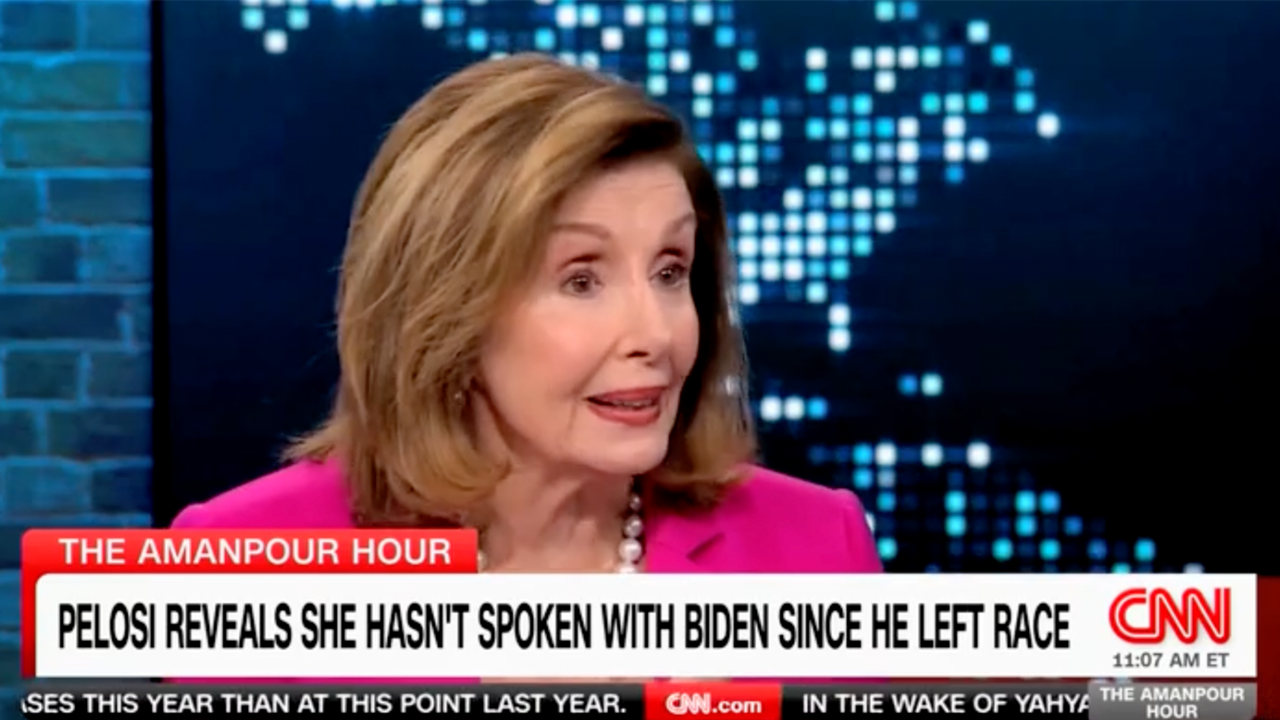Nancy Pelosi’s Perspective on Biden’s Decision to Step Down from the 2024 Race
In a recent interview with CNN’s Christiane Amanpour, former House Speaker Nancy Pelosi shared her insights regarding President Biden’s decision to end his re-election campaign for 2024. Pelosi emphasized that her concerns were not directed at Biden as a candidate but rather at the state of his campaign. This distinction is crucial as it highlights the complexities of political strategy and the dynamics within the Democratic Party.
Pelosi’s comments came in the wake of reports suggesting she played a significant role in persuading Biden to step aside. When Amanpour inquired about the rationale behind this move, Pelosi clarified, "Now, my concerns were around the campaign, not about the candidate. He’s fabulous." This statement underscores her respect for Biden’s capabilities while expressing unease about the campaign’s trajectory.
The Context of Pelosi’s Concerns
Pelosi’s apprehensions about Biden’s campaign were echoed by other prominent Democrats, including Senate Majority Leader Chuck Schumer. Following a particularly challenging debate performance in June, there was a growing consensus among party leaders that a change was necessary. Pelosi articulated her worries, stating, "But the campaign, I thought, was not going in the right direction, and I expressed my concern about that." This sentiment reflects a broader concern within the party about the effectiveness of the campaign strategy as the election approached.
In her interview, Pelosi noted that she had not spoken to Biden since July, attributing this to her busy schedule on the campaign trail. Despite the lack of recent communication, she expressed her admiration for the president, stating, "I think his legacy is a very substantial one for our country. It is our legacy too. I did not want that to be lost." This acknowledgment of Biden’s achievements illustrates the delicate balance Pelosi seeks to maintain between supporting the president and advocating for a more effective campaign strategy.
The Legacy and Future of the Democratic Party
Pelosi’s reflections on Biden’s legacy are significant, especially as she emphasized the need to protect it. In a separate interview with The Guardian, she reiterated her respect for Biden, calling him "one of the great consequential presidents of our country." However, she also expressed concern that the current course of the campaign was jeopardizing that legacy. "I didn’t see that happening in the course that it was on, the election was on," she remarked, indicating a desire for a more robust approach to the upcoming election.
The former Speaker’s comments also touched on the generational dynamics at play within the Democratic Party. She acknowledged that Biden’s age could pose challenges, stating, "I do think there was a generational thing though that had to be recognized." This observation reflects a growing awareness among party leaders about the need for fresh perspectives and leadership as the political landscape evolves.
Biden’s Response to Party Concerns
In August, President Biden himself acknowledged the pressure he faced from Democratic lawmakers regarding his candidacy. He revealed that many colleagues believed his continued presence in the race could harm their electoral prospects. "A number of my Democratic colleagues in the House and Senate thought that I was going to hurt them in the races," Biden explained in an interview with CBS News. This admission highlights the interconnectedness of individual campaigns and the broader party strategy, illustrating how personal decisions can have far-reaching implications.
When Amanpour asked Pelosi whether she believed the Democratic Party could have won the election with Biden still on the ticket, she offered a candid response. "You see, it’s hard to ask me that question because I don’t understand how anybody could vote for Donald Trump, but they do and so we have to be prepared." This statement encapsulates the challenges the party faces in appealing to a diverse electorate while navigating internal dynamics.
Conclusion
Pelosi’s insights into Biden’s decision to step down from the 2024 race reveal a nuanced understanding of the political landscape. Her emphasis on the campaign’s direction rather than the candidate himself highlights the complexities of electoral strategy within the Democratic Party. As the party moves forward, the interplay between legacy, generational dynamics, and electoral viability will undoubtedly shape its path in the coming years.
